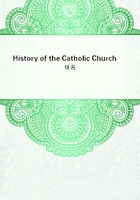
第234章
Mary of Guise had shown great abilities during the contest with Henry VIII. and the Protector. Though the Earl of Arran was nominally regent it was she who guided his counsels and inspired his policy. The French government, distrustful of the regent who was also the next claimant for the Scottish throne, induced him to resign his office, for which he received in return the empty title of Duke of Chatelherault, and Mary of Guise undertook the government of Scotland for her infant daughter. About the ability of the new regent or her devotion to the Catholic Church there could be no difference of opinion, but unfortunately she was more anxious to strengthen the French hold upon Scotland than to take the necessary measures for the peace of the kingdom and the suppression of heresy. She filled her fortresses with French subjects, showing thereby that in her opinion Scotchmen could not be trusted. As a result she gave great offence to the native lords, aroused Scottish patriotism against France as it had been aroused against England by the aggressive policy of Henry VIII., and prepared the way for the dissolution of the alliance between patriotism and Catholicism, an alliance that had hitherto been the main barrier against the success of the reforming English party.
The Scots began to fear that with their young queen united in marriage to the King of France Scotland stood in danger of becoming a French province, and though the Scottish Parliament took care to safeguard the independence of the country in the marriage settlement drawn up in 1558, the leading men had grave suspicions that the agreement would have little effect. Besides, Mary of Guise had no longer anything to fear from English Protestantism, which was rendered powerless after the accession of Queen Mary. England was now united to Spain, the mortal enemy of France, and French political interests would best be served by maintaining an attitude of friendly neutrality towards English Protestants, who were likely to prove more dangerous to Spanish designs than to France. Such a policy of neutrality might result, too, it was thought, in securing the throne of England for the young Scottish queen, whose claims as the nearest legitimate heir could not be questioned. For these reasons the regent was not unwilling to allow Protestant refugees to take up their residence in Scotland, and to permit the followers of the new religion to continue their campaign so long as they did not disturb the public peace. In her correspondence with the Pope she paid little attention to the religious danger that was threatening the kingdom, and seemed to be more anxious to obtain permission to tax the clergy than to secure an energetic reform of the abuses that she painted in such dark colours.[11] The Scottish lords, many of whom were offended by the preponderance of French soldiers and French officials, were only too willing to assist the new preachers, and what was worse, to stir up their clansmen against the old religion by holding up the bishops and clergy as the friends of France and the enemies of Scottish independence. National patriotism was now utilised to help forward the cause of Protestantism, by the very men who a few years before had agreed to betray their country for English gold, and had striven with all their might to make Henry VIII. the protector of Scotland.
Some Protestant refugees from England were soon at work in different centres of the country, and encouraged by the regent's policy of neutrality, the man, who was destined to be the apostle of the Reformation, returned to his native land (1555). John Knox,[12] who had shown his devotion to the Gospel by applauding the murder of Cardinal Beaton as a "godly act," and who had founded the first reformed congregation among the murderers gathered in the castle of St. Andrew's, having been released from the French galleys, became a pensioner of Edward VI., and took up his residence in some of the northern towns of England. In a short time he was appointed royal chaplain, and might have had the Bishopric of Rochester had he not expressed the view that such an office was incompatible with devotion to the true evangelical religion. On the accession of Queen Mary he fled from England to Geneva, from which he returned to Scotland in 1555. His violent and overbearing manner, his extravagant denunciations of his opponents, his misrepresentations of their actions and policy, and his readiness both as a speaker and as a writer, qualified him perfectly for the leadership of a revolutionary party, were it not that at certain critical moments his anxiety to avoid personal danger was calculated to shake the confidence of his followers. He was welcomed by many of the discontented nobles, amongst others by Lord Erskine afterwards Earl of Mar, Lord Lorne and his father the Earl of Argyll, Maitland Lord of Lethington, the Earl of Glencairn, and Lord James Stuart prior of St. Andrew's, who as Earl of Moray was soon to betray his sister, Mary Queen of Scots.
Encouraged by the protection of such powerful patrons he preached freely and with great success in several districts of Scotland. The clansmen were so united to their lords that they were prepared to follow their example even in matters of religion. The bishops and the regent, to whom these proceedings must have been known, were strangely oblivious to their duties, and when at last they mustered up sufficient courage to summon Knox to appear at Edinburgh (1556), they were so alarmed by the strength of his following that they abandoned the trial. Knox, encouraged by their cowardice, preached openly in the capital, and even went so far as to address a letter to the regent calling upon her to open her mind for the reception of the truth.[13]